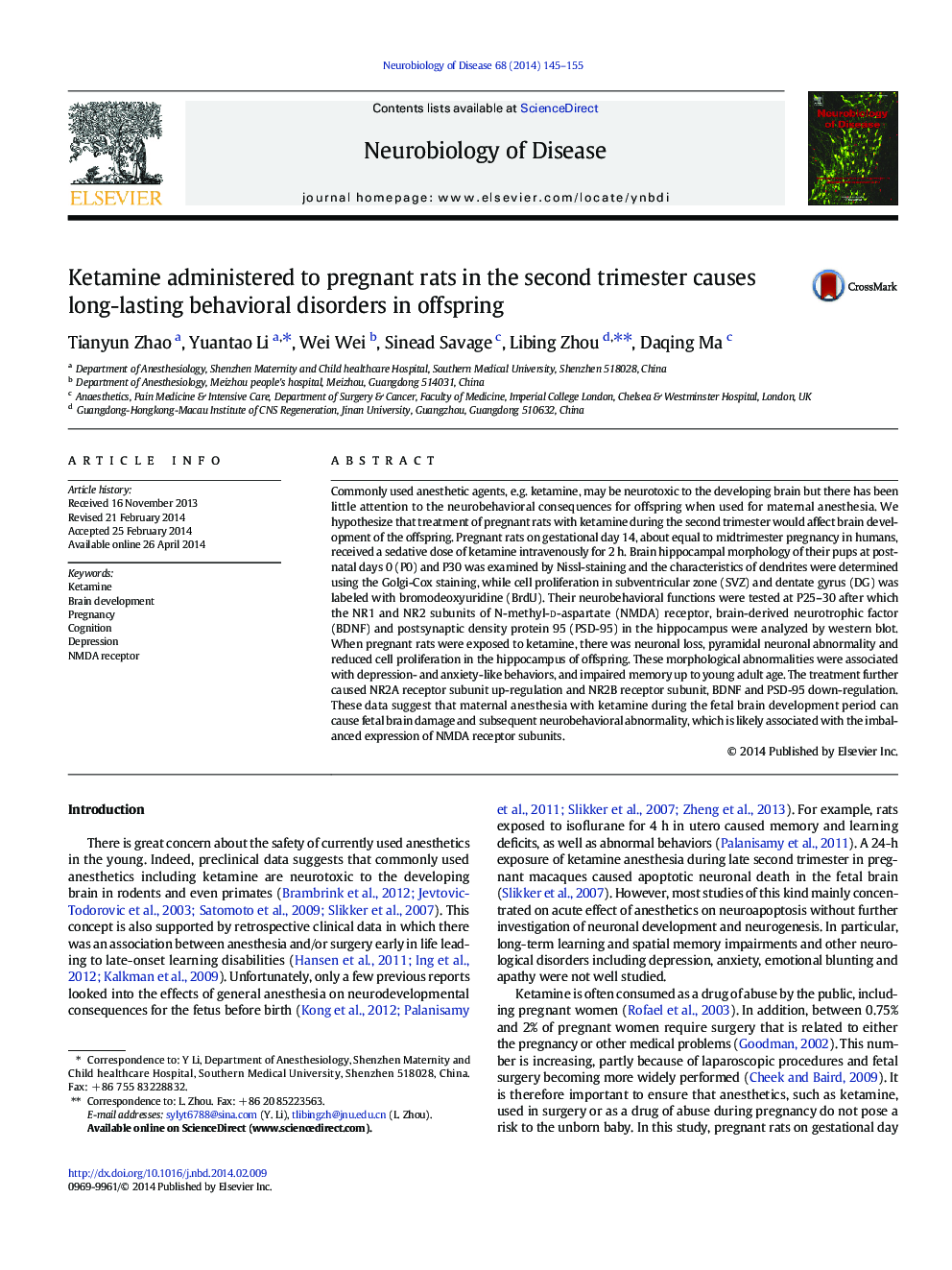| کد مقاله | کد نشریه | سال انتشار | مقاله انگلیسی | نسخه تمام متن |
|---|---|---|---|---|
| 6021955 | 1580656 | 2014 | 11 صفحه PDF | دانلود رایگان |
- Commonly used anesthetic ketamine may be neurotoxic to the developing brain.
- Little is known about its effects on offspring when used for maternal anesthesia.
- 2nd trimester pregnant rats received a sedative dose of ketamine.
- Offspring developed impaired memory and depression- and anxiety-like behaviors.
Commonly used anesthetic agents, e.g. ketamine, may be neurotoxic to the developing brain but there has been little attention to the neurobehavioral consequences for offspring when used for maternal anesthesia. We hypothesize that treatment of pregnant rats with ketamine during the second trimester would affect brain development of the offspring. Pregnant rats on gestational day 14, about equal to midtrimester pregnancy in humans, received a sedative dose of ketamine intravenously for 2Â h. Brain hippocampal morphology of their pups at postnatal days 0 (P0) and P30 was examined by Nissl-staining and the characteristics of dendrites were determined using the Golgi-Cox staining, while cell proliferation in subventricular zone (SVZ) and dentate gyrus (DG) was labeled with bromodeoxyuridine (BrdU). Their neurobehavioral functions were tested at P25-30 after which the NR1 and NR2 subunits of N-methyl-d-aspartate (NMDA) receptor, brain-derived neurotrophic factor (BDNF) and postsynaptic density protein 95 (PSD-95) in the hippocampus were analyzed by western blot. When pregnant rats were exposed to ketamine, there was neuronal loss, pyramidal neuronal abnormality and reduced cell proliferation in the hippocampus of offspring. These morphological abnormalities were associated with depression- and anxiety-like behaviors, and impaired memory up to young adult age. The treatment further caused NR2A receptor subunit up-regulation and NR2B receptor subunit, BDNF and PSD-95 down-regulation. These data suggest that maternal anesthesia with ketamine during the fetal brain development period can cause fetal brain damage and subsequent neurobehavioral abnormality, which is likely associated with the imbalanced expression of NMDA receptor subunits.
Journal: Neurobiology of Disease - Volume 68, August 2014, Pages 145-155
